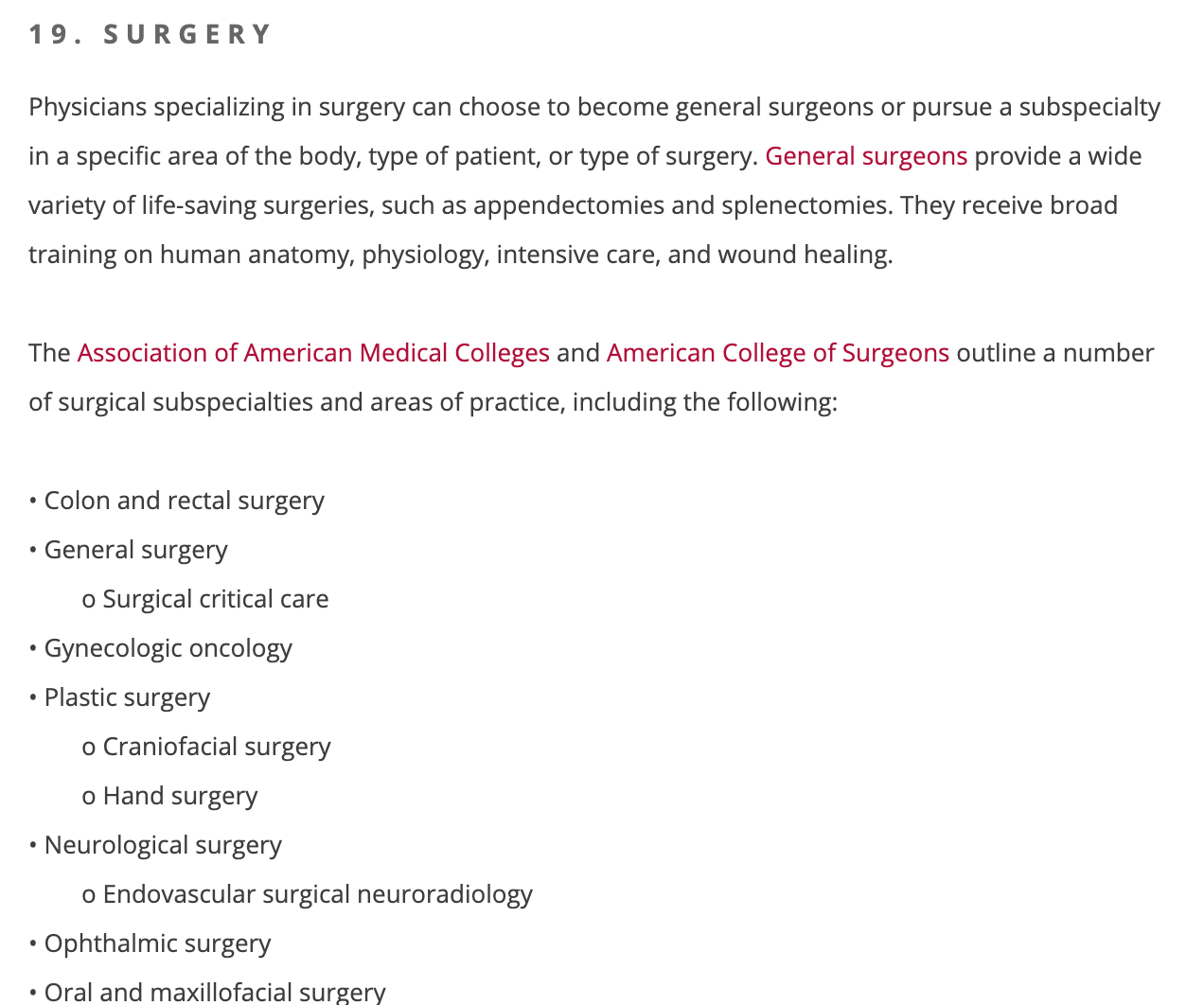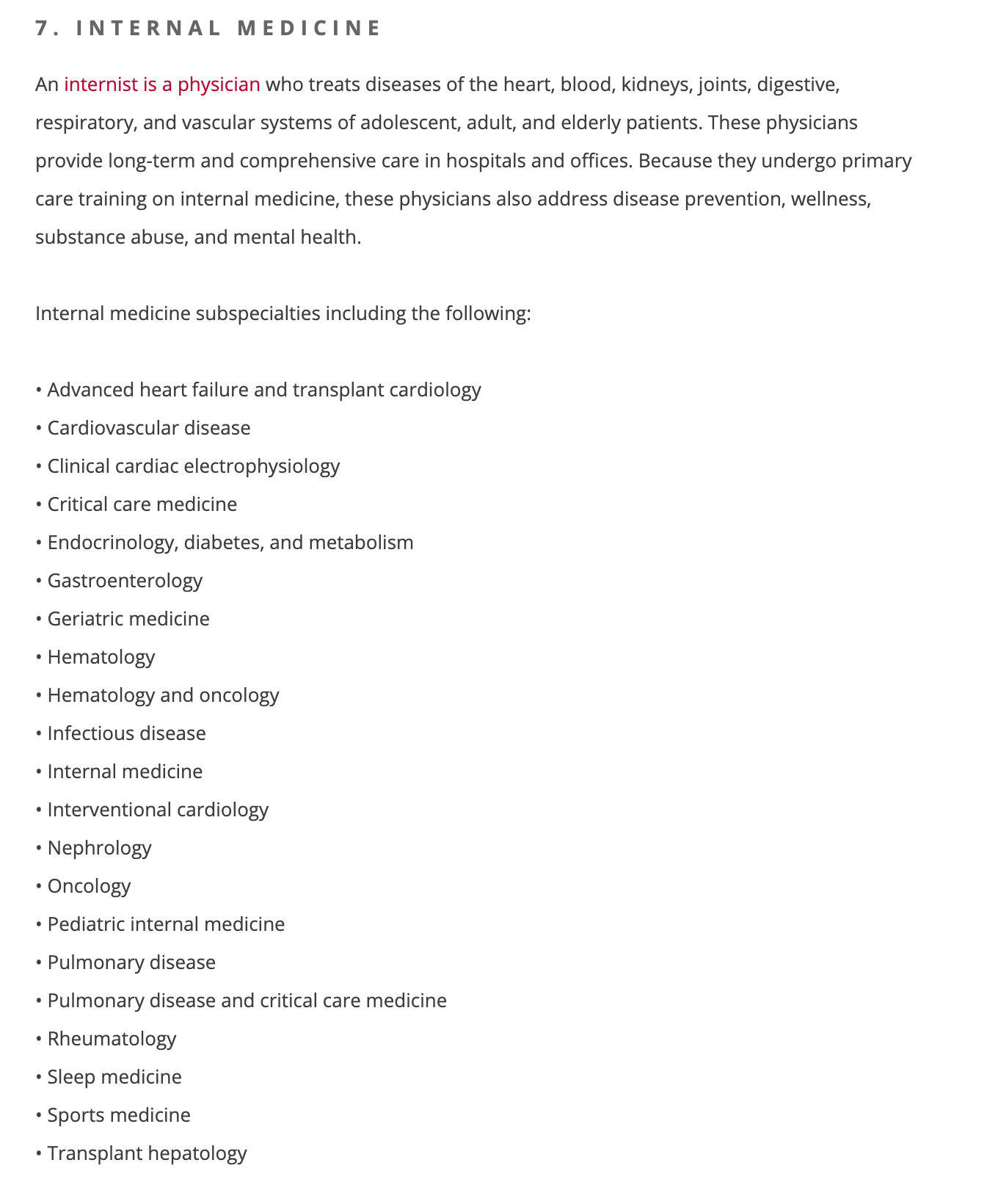I need to create easy to read universal list of medical specialties. This goal seems impossible if taking into account subspecialties - in most countries they are pretty different. Since there are no worldwide agreements on how to group specialties, I decided to group it by the medicine branch it belongs to.
I need help clarifying what specialties and subspecialties exist, and how they are related.
As a basis I took a list of medical branches from wikipedia:
Anesthesiology
Cardiology
Critical care medicine
Dentistry
Dermatology
Emergency medicine
Endocrinology
Epidemiology
First aid
Gastroenterology
General practice/Family medicine
Geriatrics
Gynaecology
Hematology
Hepatology
Infectious disease
Internal medicine
Neurology
Nephrology
Obstetrics
Oncology
Ophthalmology
Optometry
Orthopaedics
Otorhinolaryngology
Pathology
Pediatrics
Preventive medicine
Psychiatry
Pulmonology
Radiology
Sports medicine
Rheumatology
Surgery
Urology
Then I google a list of medical specialties and try to put it all together. This is the first link from google: https://www.sgu.edu/blog/medical/ultimate-list-of-medical-specialties/
Lets take a look on how do they group Surgery:
They put Paediatric Surgery into Surgery. Fair enough.
Lets see Pediatrics group:
Almost all specialties constructed as two medical branches joined together:
Pediatric Cardiology, Pediatric Endocrinology. Are there any unique specialties in Pediatrics? Why we don't put it into Endocrinology, Cardiology groups? What brach of medicine has more weight when grouping specialties?
As I understand, if you are Cardiologist, you can perform Pediatric Cardiology procedures also, and it should be your subspecialty. So for Surgery they did right grouping, but for pediatrics, we should leave only those specialties that are unique for this branch of medicine only.
And the biggest issue. There are such branches as:
Internal medicine
General practice/Family medicine
Lets take a look at Internal Medicine
Almost all specialties just repeat existing medicine branches.
Aren't Internal Medicine doctors are more generic? Seems like oncology requires Oncologist, which can have also different areas of expertise, but not Internal Medicine doctor.
How can I better conceptualize how specialties and subspecialties are divided up?



